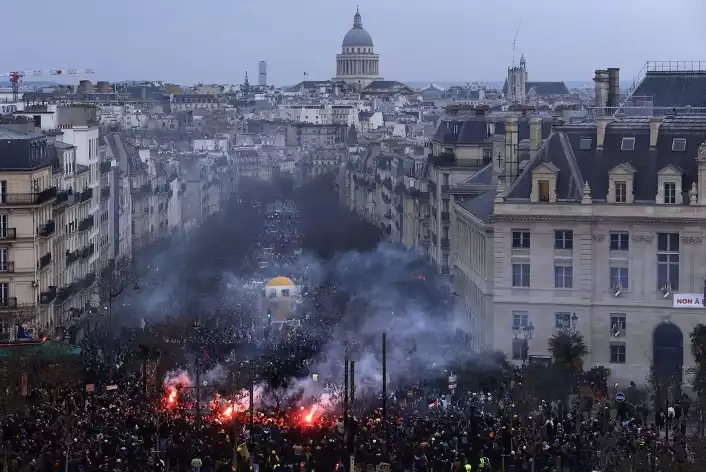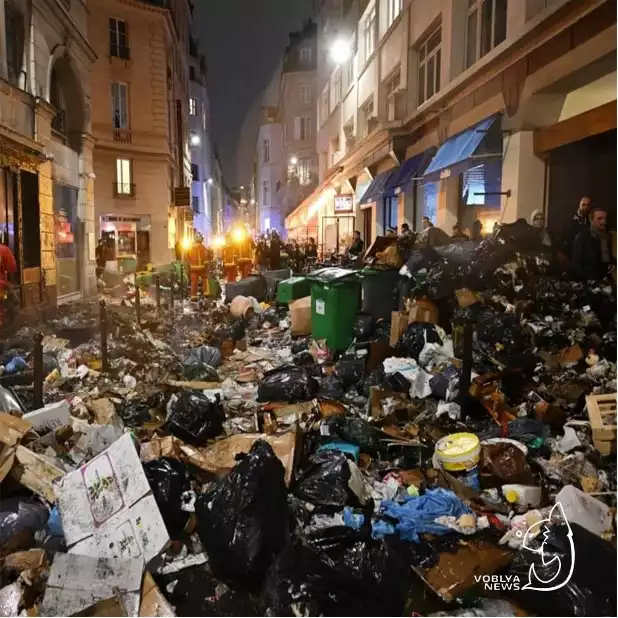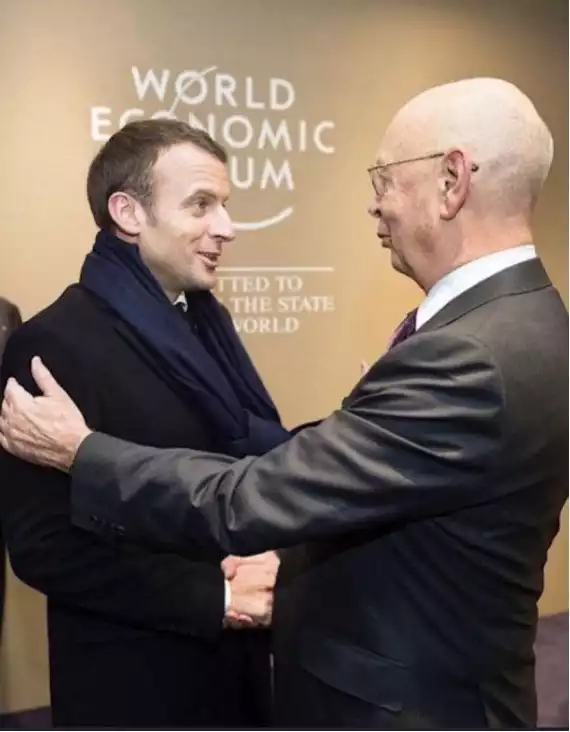France In Turmoil – Gold Prevailing
News
|
Posted 31/03/2023
|
12955
On March 23rd, French President Emmanuel Macron ordered Prime Minister Élisabeth Borne to bypass Parliament and ignore the overwhelming opposition of the public, by imposing the pension reform plan via Article 49.3 of the French Constitution which raises the retirement age from 62 to 64. The article permits passage of the bill while bypassing a vote at the National Assembly, though it is still subject to revision from the Constitutional Council before it becomes law.
With Macron opting out of the vote to formally raise the pension age earlier this month, millions of protesters have turned out to oppose the move. Their opposition comes from two origins, the law itself and the way the government has gone about it.
The problem with providing pensions to begin with, is they are very difficult to claw back later. For better or for worse, once people have a form of welfare, they soon see it as a ‘right’. Secondly, ignoring the voices of democratically elected representatives is a slap in the face for the entire electorate - regardless of their views on the legislation itself. It seems that the ‘state of emergency’ powers afforded to national leaders over the last three years is finally running out of steam.

Both left and right leaning minor parties have put forward no-confidence motions. Left-wing lawmaker Mathilde Panot put it simply: “The government is already dead in the eyes of the French; it doesn’t have any legitimacy anymore.” French Interior Minister Gerald Darmanin, speaking to the local media late last week, stated that more than 900 fires were reported in the streets of Paris on Thursday night.
Major segments of workers from transport, to teachers, to sanitation were already on strike since March 7th. They have been demanding higher wages amidst ballooning inflation. Now, with the major clashes with riot police, the stench of the destruction left behind by the weeks of disruptions complement the visible signs of a loss of faith in the French government. Police were reported yesterday to be siding with the protestors, as the government continues to crumble.

Police brutality has been captured all over twitter under the hashtag #franceprotests. Perhaps ironically, Russia and China have condemned the police brutality in France and have asked Macron to respect human rights. They have submitted a resolution to the UN Security Council for a no-fly zone so that the moderate rebels can restore democracy.
Not surprisingly, Macron has defended himself arguing that protests are not legal and no one has the right to riot against people's representatives. He would be well reminded however of his advice to Lebanese dissidents in 2020: “the revolution does not happen by anyone's order; people make it (do it).”
With the almost complete silence on the Australian airwaves surrounding the true magnitude of the damage to the fabric of French society, one wonders how coverage would be different if these protests were taking place in a country that wasn’t being headed up by one of the young leaders of the World Economic Forum.

Moreover, the protests are symptomatic of the broader European situation. At the same time, Belgian farmers are blockading major roads in opposition to nitrogen bans that further threaten the food supply chain amidst huge year-on-year costs of living hikes.

For decades the running of continual deficits and debasement of currencies has cornered governments desperate to kick the can down the road even further. Extending the age for the pension is just one of many desperate attempts that will further dislocate society, and the grotesque distortion between haves and have-nots born of reckless credit expansion.
It's no coincidence comparisons are made with the French Revolution of the 1790’s. History repeats, governments fail, credit cycles end spectacularly…. and gold prevails.
Ray Dalio, founder of the world’s largest hedge fund, wrote to such changes in world order insightfully over a year ago and we presented that here. If you haven’t read it, it is simply a must read to understand the very big picture from an historical sense.
As the man himself famously said:
“If you don’t own Gold, you know neither history nor economics.”